Israel-Hamas War: What happened on day 110?
IDF launches western Khan Yunis push • 21 soldiers killed in one incident as Israeli suffers highest casualties in one day since October 7
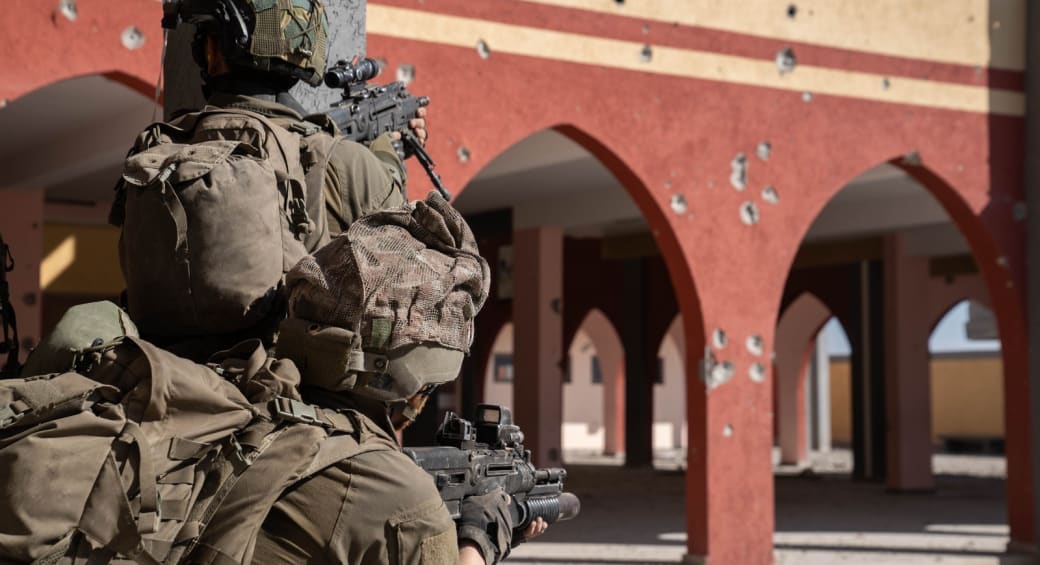
Gaza border residents raise concerns over mental health, well-being
Insights from a comprehensive survey of the people from the Sdot Hanegev regional council.
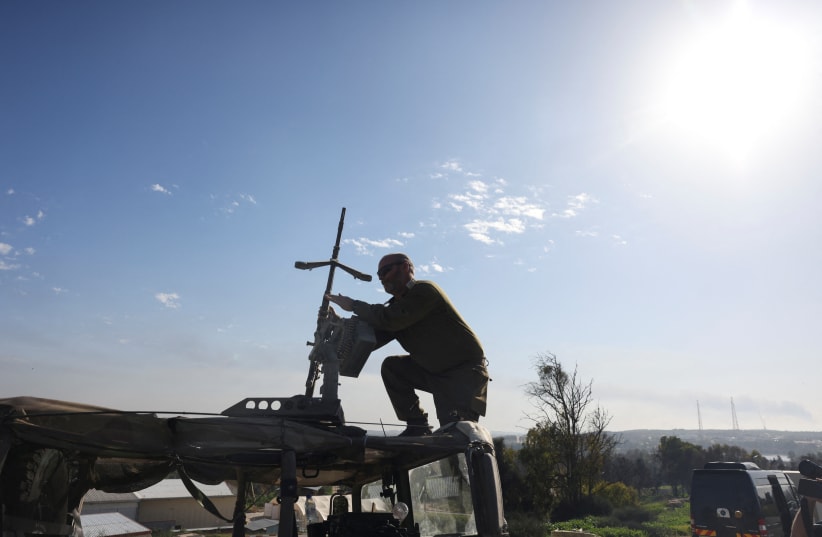
Crucial insights have emerged regarding the priorities of the Sdot Hanegev Regional Council kibbutzim, moshavim, and community settlements greatly affected by the barbarous Hamas incursion on October 7. These communities are focused on the psychological state of children and youth as the foremost concern, and there is a collective call for enhanced security measures.
A comprehensive survey of 1,128 respondents conducted by the Negev Fields Council in collaboration with the Hebrew University of Jerusalem (HU) underscores the significance of providing residents with a platform to voice their opinions and influence decisions pertaining to the return to their homes, educational priorities, and personal security
The survey was led by Prof. (Emeritus) Rami Benbenishty, Prof. Ruth Pat-Horenczyk, Prof. Miriam Schiff, and Dr. Ohad Gelber from HU, with special assistance from Mr. Eli Klingberger and in collaboration with Hila Barzilai, Ms. Irit Segal, Dr. Liraz Cohen-Biton from the Negev Fields Council. Of all the respondents, 66% were women, 27% were men, and 7% chose not to specify their gender. Notably, 84% of the respondents have children in the education system.
The survey was conducted over the Internet using links distributed by the local leadership between December 14 to 29, 2023. A total of 84% of the respondents have children in the education system, with half of them having at least three children in the kindergartens and schools.
While most questions were closed-ended, participants were also given the option to provide free-text responses, leading to a separate report specifically addressing those inputs.
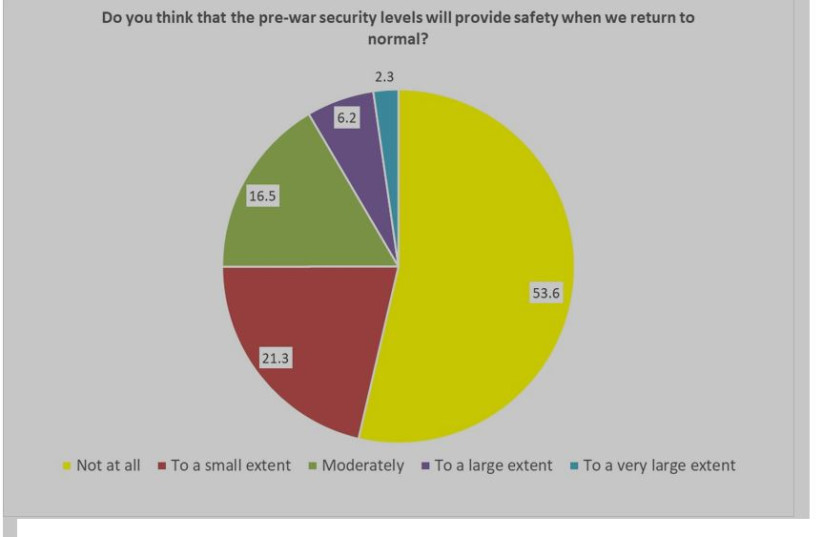
The research underscored the significance of providing residents with a platform to voice their opinions and influence decisions pertaining to the return to their homes, educational priorities, and personal security. Prof. Benbenishty stressed the need to continue this inclusive process in the coming months, extending it to other communities in the south and north to stay attuned to the challenges faced during times of conflict.
The priorities of the residents
The survey identified the “government announcement to destroy Hamas” and “additional budgets for the community” as significant factors that would influence their decisions to return to their homes.
Mental health emerged as the top priority for schools, as well as enhancing social ties among youth, reflecting the community's concern for their well-being.
A majority of respondents expressed skepticism about the adequacy of pre-war security levels after the war. The consensus was that improvements are crucial in all security areas, especially on the allocation of weapons to local emergency units and bolstering camera surveillance.
Benbenishty said that ongoing dialogue to empower residents and address the unique challenges faced by the community in times of war was very important. These findings serve as a foundation for continued collaboration and action in ensuring the well-being and security of the Sdot Hanegev community, he noted.
The researchers emphasized the importance of listening to the voices of the community and incorporating the collective voice into decision-making and policy formulation. “As the circumstances change over time, it is important to keep a finger on the pulse and see what are the current needs and attitudes of the residents of these devastated communities.”
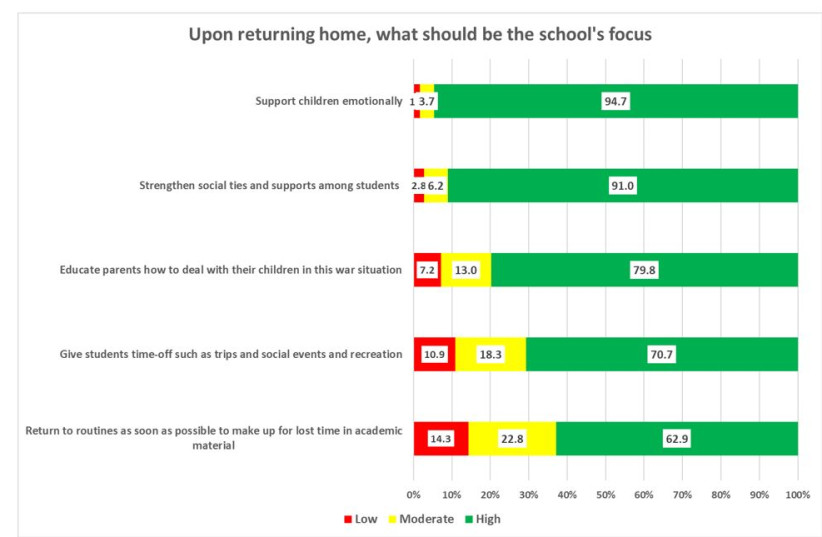
They added that although most residents express multiple needs and difficult life circumstances, the majority are willing to volunteer to help others, and more than a fifth already volunteer to help others.
The main factors influencing the residents’ decisions to return to their homes are highlighted in survey responses. A significant majority of residents (62%) cited the 'Government announcement on the eradication of Hamas' as a key factor, while 50.2% identified 'Additional budgets for the community' as another crucial consideration.
In contrast, fewer residents mentioned changes in the local leadership and the overall appearance of their settlement as factors influencing their decision to return.
As for the significance of employment in the decision, 57% of respondents indicated that employment is not a decisive factor for them. Among those who consider employment as an influencing factor, a substantial majority (38%) believe they should return as soon as possible, while a small minority (5%) prefer not to return immediately.
In assessing the various needs and priorities upon the return of children to educational frameworks, respondents with children were asked to prioritize these elements.
The results reveal that parents primarily prioritize the educational environment's impact on their children, emphasizing the emotional and social aspects they wish the school to address. In contrast, the need to emphasize academic achievements is perceived at a considerably lower level of importance.
Go to the full article >>'What is there to celebrate?': Israel's Knesset marks 75 years in somber ceremony
Netanyahu reiterates commitment to defeat Hamas amid ceasefire talks • Yair Lapid to Knesset: What is there to celebrate?
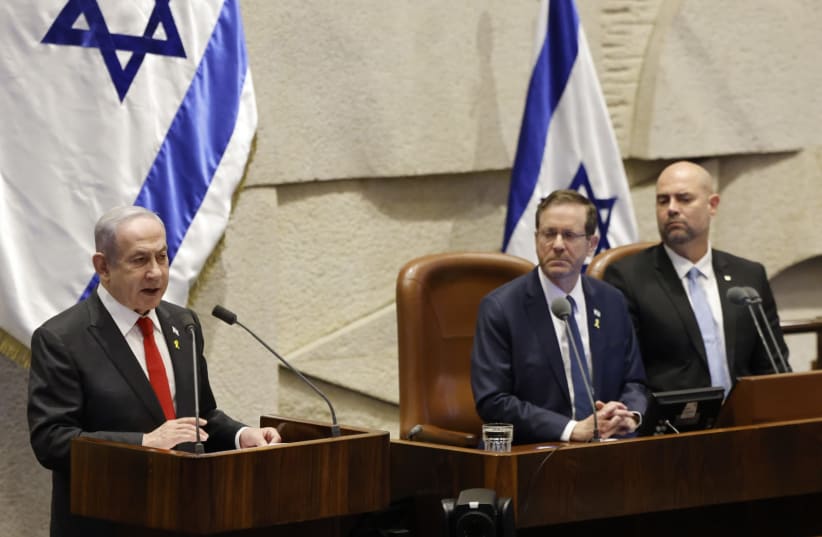
Israel's parliament, the Knesset, marked its 75th birthday in a somber ceremony on the plenum floor on Wednesday morning, with President Isaac Herzog, Prime Minister Benjamin Netanyahu, Opposition Leader MK Yair Lapid, interim Supreme Court Chief Justice Uzi Fogelman, and dozens of foreign ambassadors and other dignitaries.
Every year on the spring holiday of Tu Bshvat, which falls on Thursday, the Knesset traditionally holds a large event open to the public, with festivities to celebrate both the holiday and the Knesset's founding in 1949. However, this time, the ceremony began with a moment of silence in memory of the 24 soldiers who were killed in two incidents in the Gaza Strip on Monday.
Knesset Speaker MK Amir Ohana in his speech stressed the diverse backgrounds of the soldiers who were killed, including Elkana Vizel, who was evacuated from Gush Katif in the Gaza Strip; Nir Binyamin, from Givatayim; and Ahmad Abu-Latif, from the Bedouin city Rahat.
"The people of Israel are not strangers to riots, persecution, slaughter and Holocaust," Ohana said. "But always, out of the deep pain, out of the grief and bereavement, out of the deep sorrow and sadness, we always knew how to grow and bud, build and be built, learn and teach, blossom and plant, live, and bring life to the world. This is what will happen this time as well."
Herzog called on the members of the Knesset to internalize the fact that unity amongst the people begins with unity in the Knesset itself – and that despite all of the differences and arguments, Israel cannot afford to allow itself to return to the animosity that existed before October 7
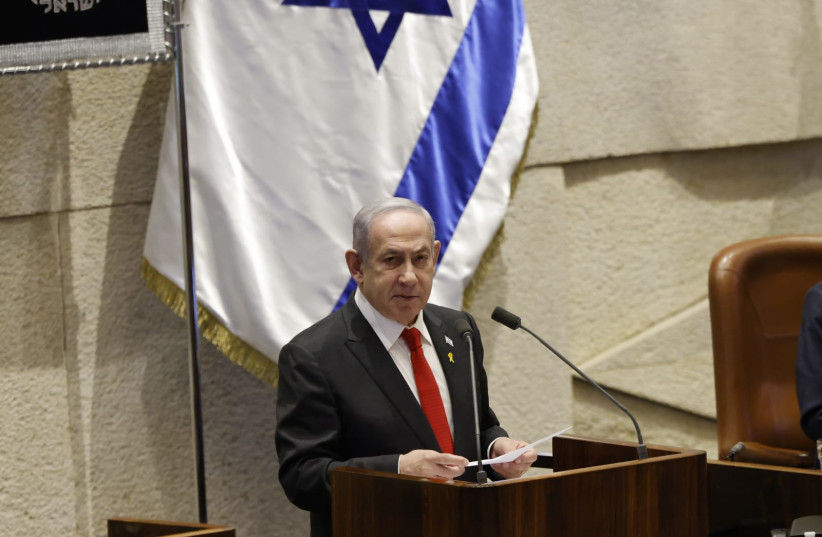
Netanyahu in his speech reiterated his commitment to defeating Hamas. The prime minister referred to a claim that October 7 marked a return to the beginning of Zionism – the pogroms in eastern Europe and the understanding that Jews must have the ability to defend themselves. The current war was indeed a test for the Jewish people about their determination to remain a sovereign people in their land – and Israel must, and will, be victorious in all its aims – to topple Hamas, release the hostages, and ensure that there will never be a military threat from Gaza.
Yair Lapid to Knesset: What is there to celebrate?
Lapid, who has ramped up his criticism of the government and begun to call in recent weeks for an election, struck a different tone.
"We gathered here to celebrate the Knesset's birthday. What is there to celebrate? Do you see anyone else in the country celebrating?" Lapid said. He argued that "the Knesset and government are not the solution, they are the problem," adding that "the time has come for us to ask ourselves how we arrived at a situation in which the citizens of Israel, the best people in the world, feel like they have lost control over their lives, and no one is caring for them."
Lapid offered thinly veiled criticism, saying that the government must say loud and clear that the utmost goal is to bring the hostages back home – and then begin to deal not just with tactics, but with strategy.
"Gaza is just part of the problem … Israel will win the war, but victory is not just killing (Hamas military leader Yahya) Sinwar. Victory is being better – better to each other, and better as a nation. For the living and those who are being buried, we must bring about change," Lapid said.
"We know today that the fact that we did not make this change on time led to a disaster. The biggest disaster in our history. We will not let the next disaster happen. Israel will carry out the necessary change, there is no other way," Lapid concluded.
Go to the full article >>Likud MK Tally Gotliv: Hostage families' actions are weapons for Hamas
"The shouts of 'now, now,' the outbursts during the Knesset meetings, these are weapons for Hamas, fuel for Hamas," Gotliv, an outspoken opposer to any ceasefire, told to the hostage families.
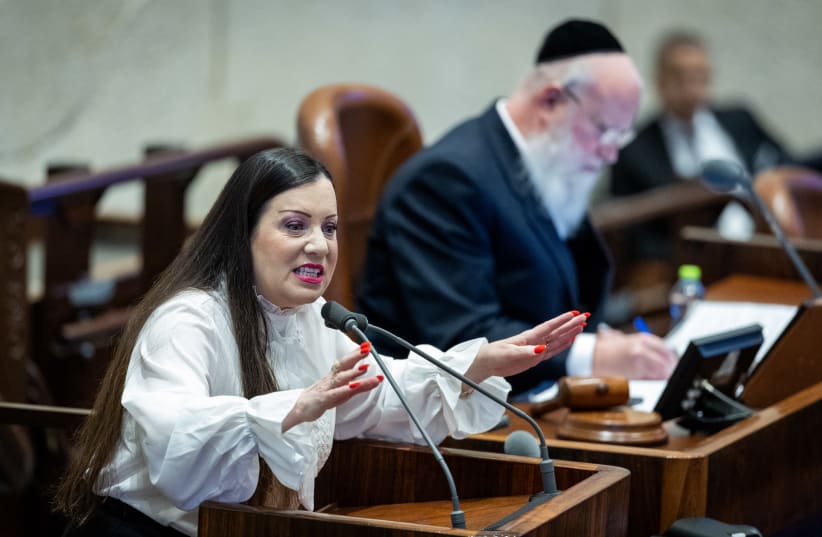
Likud MK Tally Gotliv, known for her controversial comments in Knesset, told families of hostages held by the terrorist organization Hamas on Wednesday that their political activism, calling for a hostage deal, is providing "a weapon for Hamas."
Speaking on the Knesset stage, she yelled to the plenum, "I want to say here to the members of the Knesset and your irresponsibility to Israeli society and your irresponsibility to the entire State of Israel and your irresponsibility to the hostages."
She told the plenum that the Knesset members must tell hostage families to "be quiet," claiming that a potential deal with Hamas is being pushed off further and further the more they call for a deal "now."
"We don't have any deal on the table here, when everyone here dares to shout 'now', 'deal now'. Every shout from an MK - 'deal now' - pushes the deal away."
The terms of the reported month-long Gaza ceasefire, hostage deal
Israel and Hamas broadly agree in principle that an exchange of Israeli hostages for Palestinian prisoners could take place during a month-long ceasefire, but the framework plan is being held up by the two sides' differences over how to bring a permanent end to the Gaza war, multiple news outlets reported throughout the night between Tuesday and Wednesday.
Intense mediation efforts led by Qatar, Washington, and Egypt in recent weeks have focused on a phased approach to release different categories of Israeli hostages - starting with civilians and ending with soldiers - in return for a break in hostilities, the release of Palestinian prisoners and more aid to Gaza.
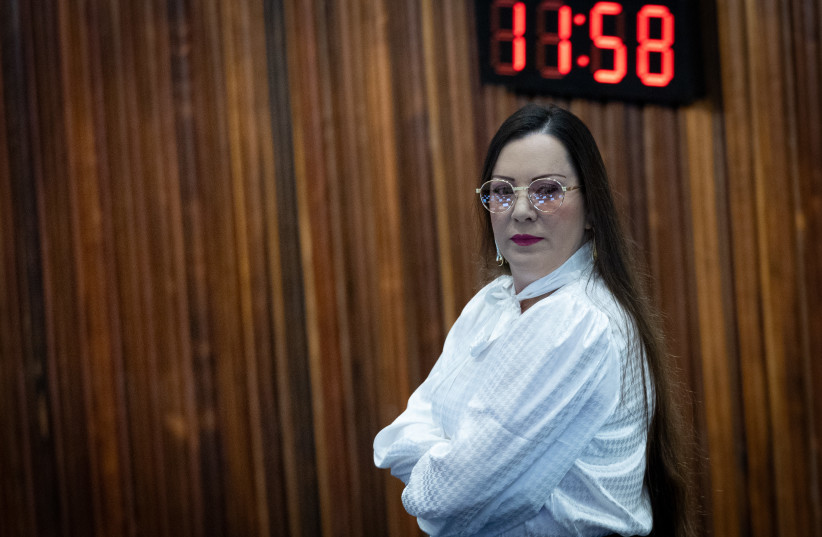
The Israeli Center and Left have been pushing for a short ceasefire and hostage exchange deal, at least, and at most, a broad ceasefire deal altogether. The Israeli Right has been opposed across the board, prioritizing the dismantling of Hamas infrastructure in the Gaza Strip and the possibility of rescuing hostages in a tight IDF operation.
Gotliv, an outspoken opposer to any ceasefire, turned to the hostage families, who were sitting in on the Knesset discussion, and said, "Dear hostage families, we are in an existential war and I am telling you that the Israeli government is doing everything in its power to bring back the hostages. The shouts of 'now, now,' the outbursts during the Knesset meetings, these are weapons for Hamas, fuel for Hamas.
"This is what is really hindering the advancement of the deal to release the hostages," she concluded amid broad cries in protest.
Go to the full article >>Pope issues new anti-war plea as he evokes Nazi Holocaust
Pope Francis has issued a new plea against all wars as he evoked the horror of the mass killing of Jews and other victims of the Nazis ahead of Saturday's Holocaust Memorial Day.
"The memory and condemnation of that horrible extermination of millions of people...may help everybody to not forget that the logic of hatred and violence can never be justified," he said during his Wednesday weekly audience.
"Let us not get tired of praying for peace, for conflicts to end, for weapons to stop, for relief for exhausted populations," Francis added.
The leader of the world's more than 1.35 billion Roman Catholics mentioned the ongoing Israeli-Palestinian conflict and the bombing of civilians in "martyred Ukraine."
He repeated his assertion that "war is always a defeat" in which "the only winners, so to speak, are weapons manufacturers."
Go to the full article >>WATCH: Netanyahu addresses Knesset on its 75th birthday
South Africa expects ICJ judgment on Gaza emergency measures on Friday
South Africa expects the International Court of Justice (ICJ) to rule this Friday on whether it will grant emergency measures to stop the war in Gaza, South African news website News24 reported on Wednesday, citing two sources close to the matter.
A spokesperson for South Africa's justice ministry told Reuters, "No communique yet." A spokesperson for Israel's foreign ministry said he was not aware and was looking into it.
Earlier this month South Africa asked the ICJ, also known as the World Court, to order an emergency suspension of Israel's devastating military campaign in the Palestinian enclave, accusing it of carrying out a state-led genocide.
Israel dismissed the genocide allegations as "grossly distorted" and said it had a right to defend itself and was targeting Hamas, not Palestinian civilians.
In the initial ruling, the ICJ will not deal with the main question of whether Israel is committing genocide. The court will just look at possible emergency measures, meant as a kind of restraining order while the court looks at the full case, which usually takes years.
Go to the full article >>Ben-Gvir, Smotrich reject 'awful, dangerous' Gaza ceasefire, hostage deal
National Security Minister Itamar Ben-Gvir raised his opposition to the reported agreement, writing on X, "in favor of returning the hostages, against an awful deal."
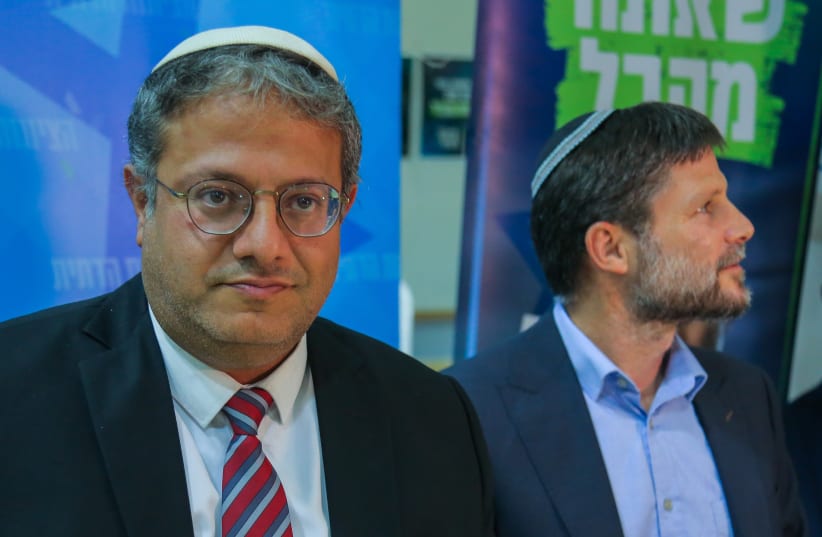
Any prolonged halt in fighting inside the Gaza Strip endangers Israeli forces and progress made in the IDF's war on Hamas thus far, Finance Minister Bezalel Smotrich charged Wednesday morning, voicing his concern over reports of a month-long truce being 'broadly' agreed upon.
As per reports, Israel and Hamas broadly agree in principle that an exchange of Israeli hostages for Palestinian prisoners could take place during a month-long ceasefire, but the framework plan is being held up by the two sides' differences over how to bring a permanent end to the Gaza war.
Two Egyptian security sources said that there was work underway to convince Hamas to accept a one-month truce to be followed by a permanent ceasefire.
However, Hamas is requesting guarantees that the second phase of the deal would be carried out, in order to agree to the initial truce, the sources said.
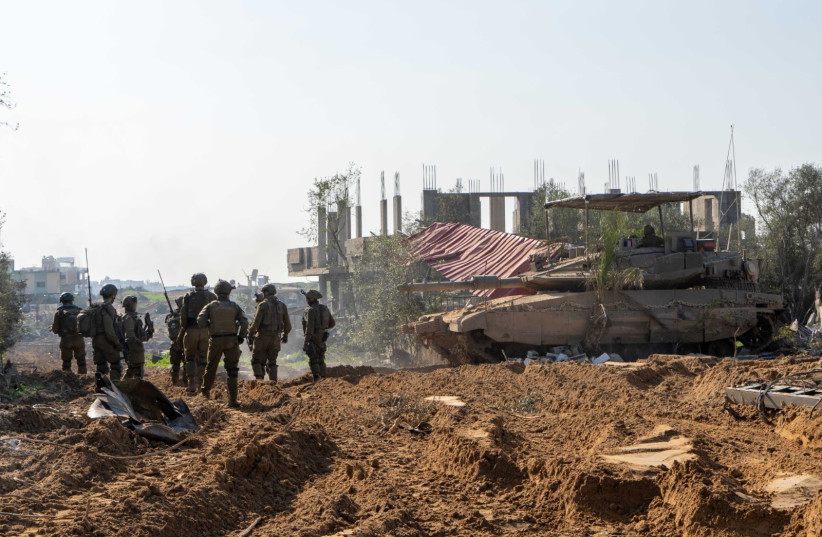
Smotrich: Stopping Gaza war now would endanger entire operation
"Stopping the war at such sensitive timing could endanger the entire operation and bring about huge costs in the Gaza Strip and other fronts," the finance minister said in a letter demanding the immediate convening of the security cabinet.
In his letter, Smotrich further demanded to receive "clarifications" over foreign reports and stressed that such an agreement would be something he "could not support."
בעד החזרת החטופים, נגד עסקה גרועה
— איתמר בן גביר (@itamarbengvir) January 24, 2024
National Security Minister Itamar Ben-Gvir also raised his opposition to the reported agreement, writing on X, "in favor of returning the hostages, against an awful deal."
Go to the full article >>Iran's President Raisi flies to Turkey for delayed Gaza talks
Iranian President Ebrahim Raisi arrived in Turkey on Wednesday for twice-delayed talks with Turkish President Recep Tayyip Erdogan, according to Iranian state-owned Tasnim.
Iranian President Raisi said, "This trip is at the invitation of the honorable president of Turkey to form a joint high delegation for the two countries. Also, negotiations are being held for the development of bilateral relations and economic issues" while at Tehran's Mehrabad Airport before leaving for Turkey.
Raisi also stated in the speech that "Iran and Turkey share a common position in supporting Palestine and their resistance. Efforts have been made in this regard to stop the bombing."
Go to the full article >>Smotrich rejects Gaza ceasefire talks, demands clarifications
Any prolonged halt in fighting inside the Gaza Strip endangers Israeli forces and progress made in the IDF's war on Hamas thus far, Finance Minister Bezalel Smotrich charged Wednesday morning, voicing his concern over reports of a month-long truce being 'broadly' agreed upon.
"Stopping the war at such sensitive timing could endanger the entire operation and bring about huge costs in the Gaza Strip and other fronts," the finance minister said in a letter demanding the immediate convening of the security cabinet.
In his letter, Smotrich further demanded to receive "clarifications" over foreign reports and stressed that such an agreement would be something he "could not support."
Go to the full article >>IDF continues attack on Khan Yunis as Israeli forces encircle Gazan city
The IDF said its forces intensified operations against Hamas in the south, killing several terror cells with sniper, tank, and aerial fire.
Israeli forces from the 98th Division continued their encirclement of Hamas terrorists in the southern Gaza city of Khan Yunis, the IDF said Wednesday morning.
The IDF said its forces intensified operations against Hamas in the south, killing several terror cells with sniper, tank, and aerial fire, as ground forces are aided by Israeli Air Force fighter jets.
In Khan Yunis, soldiers carried out targeted raids against terror targets in the area, striking a terror cell that planned to carry out anti-tank fire aimed at Israeli troops.
Another armed terror cell, as well as a cell that hid and attempted to carry out an ambush on Israeli forces, were taken out in aerial strikes directed by troops on the ground.
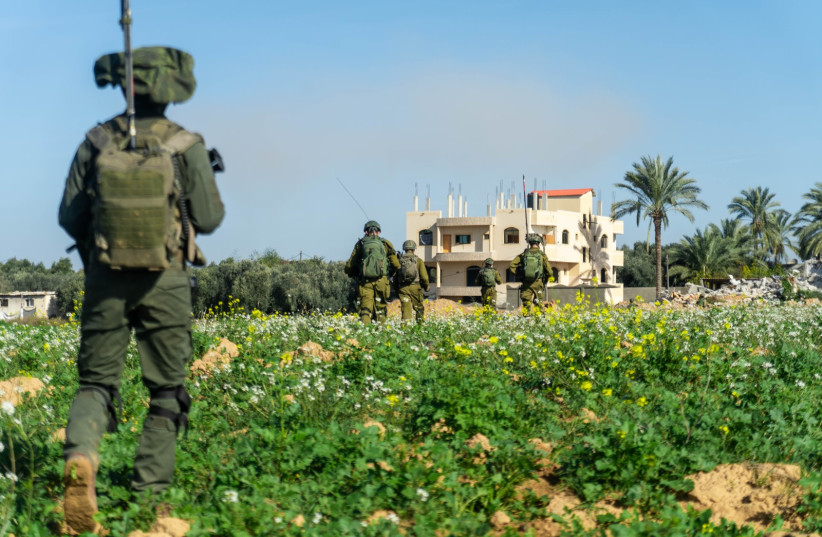
The IDF's new push in western Khan Yunis
On Tuesday, the IDF continued its new, major division-level push in western Khan Yunis, which it had started on Monday, maintaining the most intense fighting since early December. Between Monday and Tuesday, over 100 Hamas terrorists have already been killed in larger-than-usual organized battles, with around 50 Hamas fighters killed on Monday and a similar number on Tuesday.
The IDF called western Khan Yunis the heart of Hamas’s operations in Gaza, including areas where its top two leaders, Yahya Sinwar and Muhammad Deif, grew up.
In Gaza's central area, the IDF's Yiftach Brigade located and identified an armed spotter gathering intelligence and planning an attack on nearby Israeli forces. He was targeted with artillery fire.
This is a developing story.
Go to the full article >>Israel-Hamas War: What you need to know
- Hamas launched a massive attack on October 7, with thousands of terrorists infiltrating from the Gaza border and taking some 240 hostages into Gaza
- Over 1,200 Israelis and foreign nationals were murdered, including over 350 in the Re'im music festival and hundreds of Israeli civilians across Gaza border communities
- 132 hostages remain in Gaza, IDF says